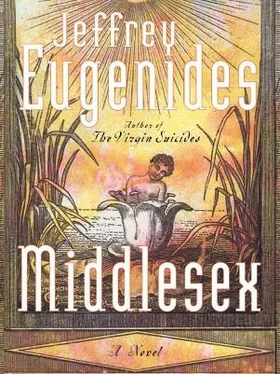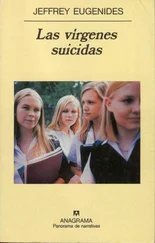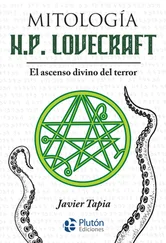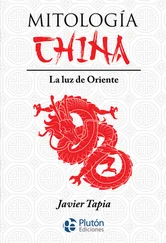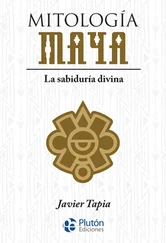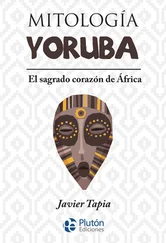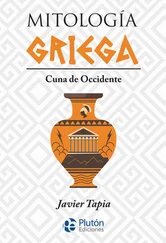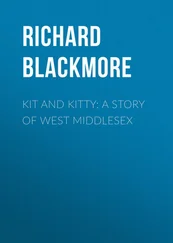I was curious about Greece myself, of course. I was eager to visit. Mr. da Silva encouraged me in feeling Greek.
“Miss Stephanides,” he called on me one day. “Since you hail from Homer’s own land, would you be so kind as to read aloud?” He cleared his throat. “Page eighty-nine.”
That semester, our less academically inclined sisters were reading The Light in the Forest . But in the greenhouse we were making our way through The Iliad . It was a paperback prose translation, abridged, set loose from its numbers, robbed of the music of the ancient Greek but—as far as I was concerned—still a terrific read. God, I loved that book! From the pouting of Achilles in his tent (which reminded me of the President’s refusal to hand over the tapes) to Hector’s being dragged around the city by his feet (which made me cry), I was riveted. Forget Love Story . Harvard couldn’t match Troy as a setting, and in Segal’s whole novel only one person died. (Maybe this was another sign of the hormones manifesting themselves silently inside me. For while my classmates found The Iliad too bloody for their taste, an endless catalogue of men butchering one another after formally introducing themselves, I thrilled to the stabbings and beheadings, the gouging out of eyes, the juicy eviscerations.)
I opened my paperback and lowered my head. My hair fell forward, cutting off everything—Maxine, Mr. da Silva, the greenhouse’s geraniums—except the book. From behind the velvet curtain, my lounge singer’s voice began to purr. “Aphrodite put off her famous belt, in which all the charms of love are woven, potency, desire, lovely whispers, and the force of seduction, which takes away foresight and judgment even from the most reasonable people.”
It was one o’clock. An after-lunch lethargy lay over the room. Outside, rain threatened. There was a knock at the door.
“Excuse me, Callie. Could you stop for a moment, please?” Mr. da Silva turned toward the door. “Come in.”
Along with everyone else, I looked up. Standing in the doorway was a redheaded girl. Two clouds bumped up above, skidding past each other, and let down a beam of light. This beam struck the glass roof of the greenhouse. Passing through the hanging geraniums, it picked up the rosy light which now, in a kind of membrane, enveloped the girl. It was also possible that the sun wasn’t doing this at all, but a certain intensity, a soul ray, from my eyes.
“We’re in the middle of class, dear.”
“I’m supposed to be in this class,” said the girl, unhappily. She held out a slip of paper.
Mr. da Silva examined it. “Are you sure Miss Durrell wants you transferred into this class?” he said.
“Mrs. Lampe doesn’t want me in her class anymore,” replied the girl.
“Take a seat. You’ll have to share with someone. Miss Stephanides has been reading from Book Three of The Iliad for us.”
I started reading again. That is, my eyes kept tracing over the sentences and my mouth kept forming the words. But my mind had stopped paying attention to their meaning. When I finished I didn’t toss my hair back. I let it stay hanging over my face. Through a keyhole in it I peeked out.
The girl had taken a seat across from me. She was leaning toward Reetika as though to look on with her, but her eyes were taking in the plants. Her nose wrinkled up at the mulchy smell.
Part of my interest was scientific, zoological. I’d never seen a creature with so many freckles before. A Big Bang had occurred, originating at the bridge of her nose, and the force of this explosion had sent galaxies of freckles hurtling and drifting to every end of her curved, warm-blooded universe. There were clusters of freckles on her forearms and wrists, an entire Milky Way spreading across her forehead, even a few sputtering quasars flung into the wormholes of her ears.
Since we’re in English class, let me quote a poem. Gerard Manley Hopkins’s “Pied Beauty,” which begins, “Glory be to God for dappled things.” When I think back about my immediate reaction to that redheaded girl, it seems to spring from an appreciation of natural beauty. I mean the heart pleasure you get from looking at speckled leaves or the palimpsested bark of plane trees in Provence. There was something richly appealing in her color combination, the ginger snaps floating in the milk-white skin, the gold highlights in the strawberry hair. It was like autumn, looking at her. It was like driving up north to see the colors.
Meanwhile she remained slumped sideways in her desk, her legs with the blue knee socks shoved out, revealing the worn heels of her shoes. Because she hadn’t done the reading she was exempt from being called on, but Mr. da Silva sent concerned looks her way. The new girl didn’t notice. She sprawled in her orange light and sleepily opened and closed her eyes. At one point she yawned and, halfway through, cut the yawn off, as though it hadn’t gone right. She swallowed something back and pounded a fist against her breastbone. She burped quietly and whispered to herself, “Ay, caramba.” As soon as class was over she was gone.
Who was she? Where had she come from? Why had I never noticed her in school before? She was obviously not new at Baker & Inglis. Her oxfords were stamped down at the heels so that she could slip into them like clogs. This was something the Charm Bracelets did. Also, she had an antique ring on her finger, with real rubies in it. Her lips were thin, austere, Protestant. Her nose was not really a nose at all. It was only a beginning.
She came to class every day wearing the same distant, bored expression. She shuffled in her oxford-clogs, with a gliding or skating motion, her knees bent and her weight thrust forward. It added to the overall desultory impression. I would be watering Mr. da Silva’s plants when she entered. He asked me to do this before class. So every day began like that, me at one end of the crystal room, engulfed by geranium blooms, and this answering burst of red coming through the door.
The way she dragged her feet made it clear how she felt about the weird, old, dead poem we were reading. She wasn’t interested. She never did the homework. She tried to bluff her way through class. She hacked up the quizzes and tests. If she’d had a fellow Charm Bracelet with her, they could have formed a faction of uninterested note-passers. Alone, she could only mope. Mr. da Silva gave up trying to teach her anything and called on her as little as possible.
I watched her in class and I watched her outside it, too. As soon as I arrived at school I was on the lookout. I sat in one of the lobby’s yellow wing chairs, pretending to do homework, and waited for her to pass. Her brief appearances always knocked me out. I was like somebody in a cartoon, with stars vibrating around the head. She would come around the corner, chewing on a Flair pen and shuffling, as if wearing slippers. There was always a rush to her walk. If she didn’t keep her feet digging forward her crushed-down shoes would fly off. This brought out the muscles in her calves. She was freckled down there, too. It was almost a kind of suntan. Sliding, she charged by, talking to some other Charm Bracelet, both of them moving with that lazy, confident hauteur they all had. Sometimes she looked at me but showed no recognition. A nictitating membrane lowered itself over her eyes.
Allow me an anachronism. Luis Buñuel’s That Obscure Object of Desire didn’t come out until 1977. By that time the redheaded girl and I were no longer in touch. I doubt she ever saw the movie. Nevertheless, That Obscure Object of Desire is what I think about when I think about her. I saw it on television, in a Spanish bar, when I was stationed in Madrid. I didn’t catch most of the dialogue. The plot was clear enough, though. An older gentleman played by Fernando Rey is smitten with a young and beautiful girl played by Carole Bouquet and Angela Molina. I didn’t care about any of that. It was the surrealist touch that got me. In many scenes Fernando Rey is shown holding a heavy sack over his shoulder. The reason for this sack is never mentioned. (Or if it is, I missed that, too.) He just goes around lugging this sack, into restaurants and through city parks. That was exactly how I felt, following my own Obscure Object. As though I were carrying around a mysterious, unexplained burden or weight. I’m going to call her that, if you don’t mind. I’m going to call her the Obscure Object. For sentimental reasons. (I also have to protect her identity.)
Читать дальше
Конец ознакомительного отрывка
Купить книгу
